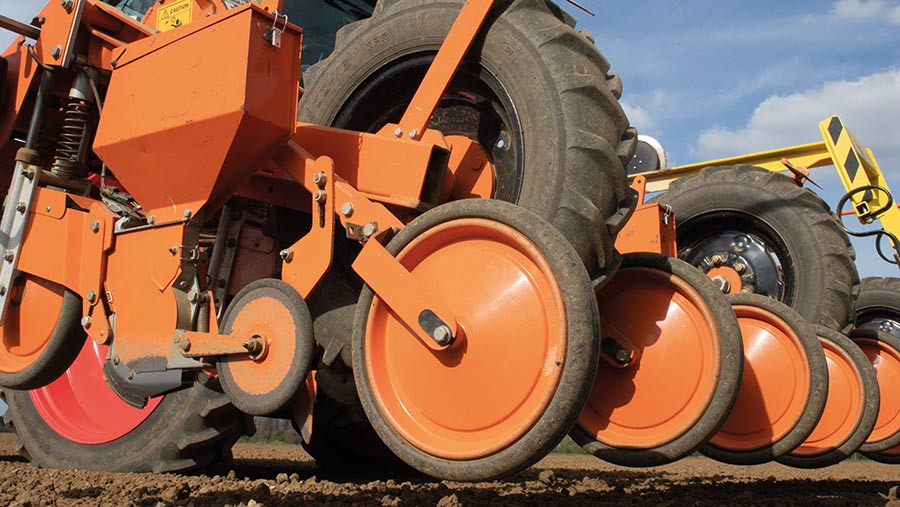Green light for neonics use in sugar beet – but only if needed
 © Tim Scrivener
© Tim Scrivener Defra farming minister Mark Spencer has paved the way for the possible use of neonicotinoid seed treatments on sugar beet this spring, but only if the disease risk threshold is surpassed in March.
The conditional emergency authorisation to use Cruiser SB, which contains the active substance thiamethoxam, comes with a number of preconditions. These include:
- A bare minimum amount is to be used
- Restrictions will apply to flowering crops being planted in the same field following seed-treated sugar beet
- The seed treatment will only be used if a predetermined, independent threshold of disease risk is surpassed in March.
The threshold for use this year will be if the Rothamsted model predicts a 65% virus yellows infection across the national sugar beet crop, compared with a 63% threshold in 2023.
See also: Tips on establishing high-yielding sugar beet crops
Similar emergency authorisation was granted by Defra in each of the past three years, but Cruiser SB was only actually used in 2022 and 2023, as the prescribed threshold was not exceeded in 2021.
Dan Green, agriculture director at British Sugar, said: “Defra’s granting of our joint application with NFU Sugar for emergency use of a neonicotinoid seed treatment is an important decision which, if it is needed, will enable the UK’s sugar beet growers to protect their 2024 crops from virus yellows disease.”
Mr Green added that work was continuing to find ways of tackling virus yellows without the need for neonicotinoids, including collaboration with plant breeders to improve natural resistance in the crop, innovation in on-farm techniques and research into gene editing.
It is anticipated that virus yellows-tolerant varieties may be available commercially as soon as 2026.
Response
News of the authorisation has met with an angry response from environmental campaigners, who point out that neonicotinoids were officially banned in 2016, yet emergency authorisations have now been granted four times in a row.
Wildlife Trusts land use policy manager Barnaby Coupe described the provisional authorisation as “a deathblow for wildlife, a backwards step in evidence-based decision-making, and a betrayal of farmers who are producing food sustainably”.
“It is entirely possible to produce food in a way that helps rather than harms nature – and UK farmers know that the use of this chemical is not a long-term solution,” he said.
Friends of the Earth sustainability campaigner Sandra Bell accused the government of “reneging, yet again, on its promises to protect the environment”, saying the use of neonicotinoids is “putting our bees at risk and polluting our rivers”.
Water quality
These claims come despite the fact sugar beet is a non-flowering plant seldom visited by bees.
In his advice to government last December, Defra chief scientific adviser Gideon Henderson also noted that water monitoring data indicates reducing concentrations of neonicotinoids since their widespread use was banned in 2016.
“Following the lowest values yet recorded in 2022, the Health and Safety Executive states that in ‘data available so far for 2023, concentrations are low and reflect a trend for decreasing levels over time’,” he said.

